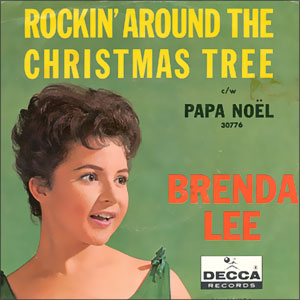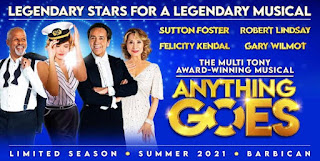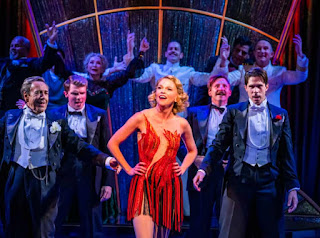The year has ended as it began with no let up in the pandemic. Although restrictions so far have been limited in England despite the rising numbers of cases of Covid 19. December has ended on a mild note, 13C today, the 30th, and 14C on New Years Eve, bright and sunny for our long muddy walk around Wendover Woods. June seems so long ago when everything in the garden was coming into bloom. The main border was at it's peak in July.
Fortunately parkrun started up again on the 24th July and I was able to put that wait for my 250th run behind me. There was even the Thame 10K at the very beginning of September where it only became very warm over the last couple of miles. The year was pretty much injury free except for 3 weeks off around our holiday in October and the last couple of weeks when the old glutes have played up once again.
Cinemas re-opened in May after closing over the winter and everything felt as if we were getting back to normal. My favourite films were French Exit, The Courier, The French Dispatch, Mothering Sunday and One Night in Soho. While cinemas were closed we enjoyed a few Saturday Night Movies at Home. A lot of old films for Alison, most seemed to star Cary Grant. I found some cheap DVD's of foreign films that never were shown in cinemas. Very little theatre unfortunately, but SIX at the Oxford Playhouse was OK. Although it was uncomfortable being in a packed theatre with lots of young people. There was also a specially made filmed performance of Romeo and Juliet that was shown in April. In cinemas, Sutton Foster in Anything Goes was superb. It is back live in London next year and I might try to find a ticket. The tour of the expensively refurbished Theatre Royal, Drury Lane (or The Lane as they like to call it) was my first trip into London. Coupled with a walk around the completed Coal Drops Yard near. Kings Cross.
In January I finally cancelled my membership of the RICS after 57 years. There was nothing of interest left for me there. We did have some snow in January but only a light covering. Early February was cold and icy, but by the end of the month, the bulbs in the garden were a picture. We also installed our new LG TV at the beginning of the year. In April we were visiting Stowe on a lovely day and in July we went to an Open Day at the dig at Old St Marys Church in Stoke Mandeville. Alison went back for a second time. In August we went to see my daughter in Tunbridge Wells and enjoyed a long walk around this historic town. At the end of June we were on holiday in Northumberland. Alison had run her two day Race to the Castle (Bamburgh) that went very well. The weather was cold for that time of year, Druridge Bay was very chilly.
Book Club was on Zoom through to September. The following month we were back at The Bell for the first time since the first lockdown. My favourite books of the year were Crossroads by Mark Radcliffe, The Gathering by Anne Enwright, The Sweet Shop Owner by Graham Swift, Redhead by the Side of the Road by Anne Tyler, Olive Again by Elizabeth Strout and, of course, Hamnet by Maggie O'Farrell.
We had to wait until mid October for a week in the Lake District as our usual cottage was booked up until then. Alison's sister and her husband joined us for a few days. It's disappointing that I can no longer make it up the high fells, even the Woodland Walk at Allan Bank was a trial. However, we were so lucky with the weather, hardly a spot of rain, and that glorious final day in the Langdale Valley was memorable. Visiting Holehird Gardens with Alison's sister and the Wordsworth Museum with Alison were other highlights.This year will always be remembered for the Covid vaccine. My first was on 3rd February, the second on 9th April and my booster. on 22nd October. How many more will we have to have?


















































